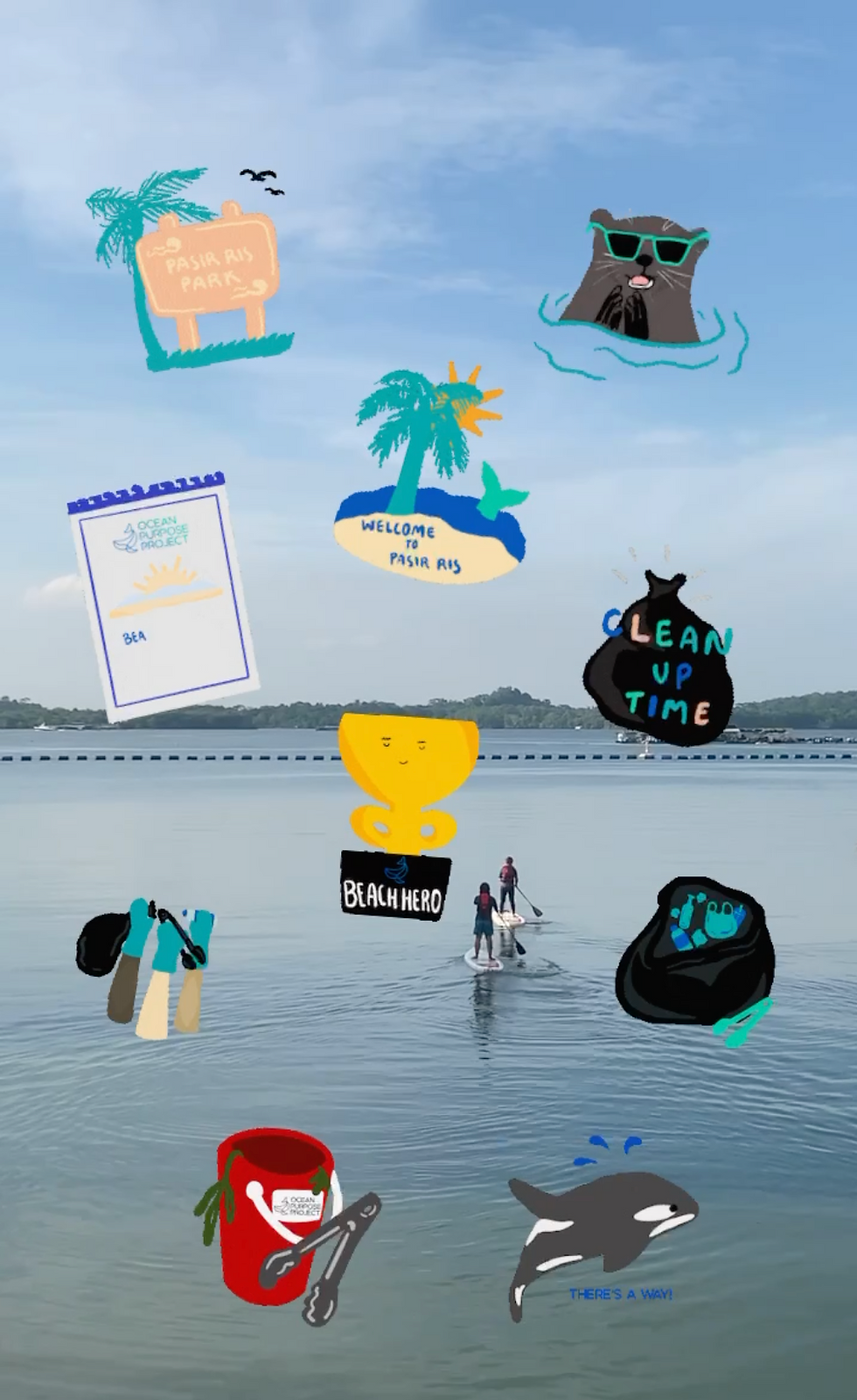Protecting Our White Sands - Everyone Can Be A Beach Hero
- Toh E-Vyn

- Jun 3, 2021
- 3 min read
Updated: Jun 10, 2021
When we think of the beach, we picture the perfect getaway with white sandy shores and the clear blue sea - a charming place of healing and restoration.

Yet, this same safe haven harbours the power to harm or even kill. With each encounter of animals entangled in beach litter and news of toxic bacteria from microplastics entering our food chain, the idea of a beach day turns from inviting to the opposite.
This raises the question - What can we do about it?
Introducing Project White Sands, an initiative by Ocean Purpose Project (OPP) aimed at inculcating lasting behaviour change in people by raising awareness and making beach cleanups a way of life.
Project White Sands is based in Pasir Ris, a beach town in Singapore whose shores are where children, couples and families flock to on a daily basis, joined by wild birds, otters, boars and mangrove species of all types. Here, the beach is an integral part of this little town’s identity - and is the pride of its ~147,110 residents.
Though there are cleaners cleaning the coast twice a day, they mainly focus on bigger items like plastic bags or bottles. As a result, many smaller bits of styrofoam and microplastics are neglected and trapped in the vegetation.
This is where OPP comes in to offer a helping hand.

Beach cleanups are crucial because they help reduce the chances of marine wildlife coming into contact with our trash, which then reduces the chances of them getting stuck or even stabbed by the litter. Even humans aren’t spared from this. With many beachgoers, some as young as two, frolicking barefooted on the sand, beach litter may pose a threat to the safety of these visitors.
A clean beach also plays a part in reducing microplastics. When we pick up plastic pieces, they will not be able to break up into smaller microplastics and will not add into the estimated 14 million tons of microplastics on the ocean floor.
Through conducting beach cleanups, organisations like us can also get data on the kinds of litter on our coastline. This identifies companies that account for the plastics left on the beach. With such solid data, these companies can be called out to redesign their products or packaging to reduce overall plastic waste. From a macro perspective, this has potential to reduce plastic-production tremendously.
In the long run, the beach ecosystem can be restored through our efforts - resulting in less pollution and more organisms that help in seawater filtration. This is even more crucial now with the news that in order for fish farming in Singapore to be sustainable, more has to be done to restore the quality of seawater.
To date, OPP’s team along with our partners and volunteers have collected over 2000 kilograms of litter from the shores of Pasir Ris in just eight months. What sets us apart is that the plastic collected will eventually be turned into fuel with OPP’s Plastic to Fuel Unit.
Our efforts were recognised when we received the SG Eco Fund in May 2021, a fund to empower everyone across the 3P (Public, Private and People) sectors to take ownership of the environment and do their part to ensure Singapore remains green and liveable for future generations.
What we plan to do with this funding is set up our very own OPP Hub at Pasir Ris Park. With this, we hope to begin greater research on our Plastic to Fuel and Seaweed & Mussels projects.
On a ground level, this is where we can hold educational sharing sessions where participants can come over to see what happens to the plastics collected and understand the amazing impact they are making.
We also want to give back by creating a space for the workers at Pasir Ris Park to have lunch or take breaks, sheltered from adverse weather conditions.
These are just some ways the OPP Hub will be used to serve the community. Currently, we still need help from volunteers and sponsors to achieve this goal to sponsor building and construction equipment. This includes the following:
Container office
Solar panels
Office furniture
Office supplies
With the continuous support from volunteers and corporate partners, we hope to further mobilise the community, bringing people together with the common goal of keeping our shores clean.

Through our collective efforts, we can reclaim the beach and turn this place fraught with hazards back to what it originally was - a natural safe haven for both humans and animals.
If you would like to contribute as a volunteer or sponsor, contact us at creative@oceanpurposeproject.com and keep updated with our projects at Ocean Purpose Project (@oceanpurposeproject) on Instagram, Facebook and LinkedIn. Don’t forget to use our newly launched OPP Instagram Stickers on IG Stories and let us know what stickers you would like to see!

This is your sign to Start Today, Save Tomorrow.
.png)



Comments